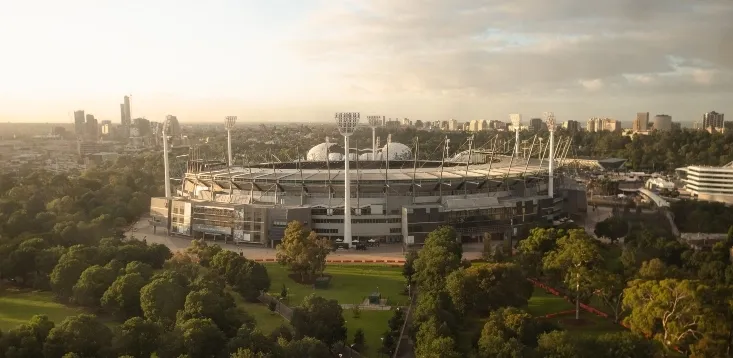England Win the World Cup… It’s Not the One You’re Thinking of

By Archie Thomas, BA Politics and International Relations
‘No, not that world cup. The cricket world cup!’
On 13 November the T20 Cricket World Cup came to an end with an enthralling final at the MCG in Melbourne, Australia. England beat Pakistan by five wickets to become world champions in the T20 format for the second time.
England, widely regarded as the best white-ball batting team, met Pakistan, the best bowling team in the tournament. In front of a Pakistan-supporting crowd at the Melbourne Cricket Ground, England won the coin toss and elected to bowl first. Momentum swung both ways through Pakistan’s innings, without either side being able to dominate for extended periods. England were unable to control the scoring of Pakistan as they did in their semi-final humiliation of India. But Pakistan were unable to score freely. Every time they looked to establish a strong run rate, England were able to slow their scoring by taking regular wickets.
Sam Curran was the outstanding bowler of the England attack. Claiming three wickets with an economy of just three runs an over. He bowled out opener Mohammad Rizwan in the first powerplay. Then bowled out Shan Masood just as Masood had built up a 36-run stand with Shadab Khan, to dramatically halt Pakistan’s progress going into the final four overs. He capped it off with the wicket of Mohammad Nawaz. Curran received the player of the match award as well as the player of the tournament award, for his outstanding performances during the World Cup.
Adil Rashid was also crucial for England, limiting Pakistan in the middle overs. He took two crucial wickets, Babar Azam and Mohammad Haris, as well as maintaining a strong economy of 5.50. With this, Pakistan set a sub-par total of 137-8, and England left the pitch at the break the happier of the two sides.
Pakistan started the second half on the front foot; Shaheen Shah Afridi took the wicket of Alex Hales with a direct hit in the first over. Jos Butler soon steadied things for England, with the help of Phil Salt, together scoring six boundaries in the opening power play. In the fourth and sixth overs, Haris Rauf took the wicket of Salt and Butler respectively. Restoring hope for Pakistan.
Ben Stokes came in to replace Salt. Stokes, the captain of England’s test side, was a contentious inclusion in the England side. He soon showed his worth. He formed a partnership of 39 runs with Harry Brook to maintain good scoring in the middle overs. Then came a crucial wicket. In the third ball of the thirteenth over Shadab Khan’s delivery was struck to long off, by Brook, where Afridi caught the low and powerful hit, falling to his knees. As Pakistan celebrated an important wicket, Afridi was laying, back flat against the grass, writhing in pain. He immediately left the field to seek medical attention on his right knee.
Pakistan were now in a decent position. England were behind schedule in the run chase needing 41 from 30 deliveries, light rain was hindering their running—Stokes slipped over at one point almost getting run out—but Pakistan needed Afridi’s two remaining overs to ensure Stokes and Moeen Ali couldn’t score freely in the final overs. Afridi returned to the field to bowl the sixteenth over, he scuffed his first delivery and his pain was evident; his knee could not cope, and he left the field for a second time.
Iftikhar Ahmed finished the over. This was the turning point for England. Against Ahmed in the sixteenth, then Mohammad Wasim in the seventeenth, Stokes and Ali took advantage. Stokes scored a four and a six and Ali took three fours, in just two overs. The game had turned decisively for England.
Wasim bowled Ali out in the penultimate over, but with just six runs needed from ten deliveries, the game seemed already won. That said, as recently as late September, England had suffered a catastrophic batting collapse against Pakistan, with just five needed from ten on that occasion. But Stokes saw it through earning his first international T20 50. Then, in the final ball of the nineteenth over he hit it leg side for a single and England came running onto the pitch in celebration.
“England is the first country to hold the world titles in both the 50-over and T20 format at the same time.”
Ben Stokes once again proved his brilliance as a big game player for any format of the game. This performance will sit alongside his miraculous run chases in the 2019 50-over World Cup Final, and the 2019 Ashes test at Headingley. Jos Butler led the side brilliantly in his first tournament as England’s white-ball captain. Continuing England’s ‘golden era’ in short form cricket, which began under the captaincy of Eoin Morgan. England is the first country to hold the world titles in both the 50-over and T20 formats at the same time.
Photo Caption: The Melbourne Cricket Ground, host of the final (Credit: Rodger Wang).



